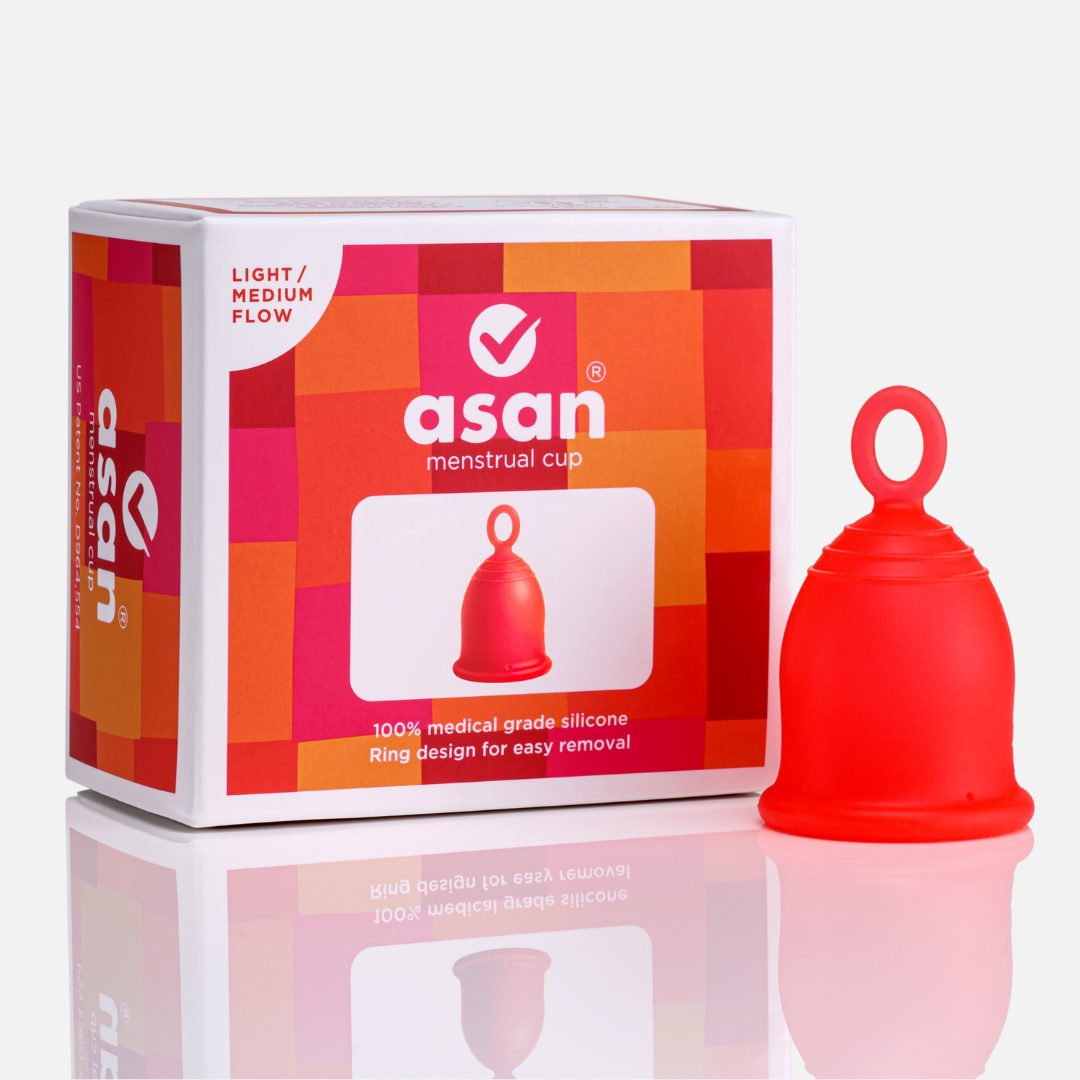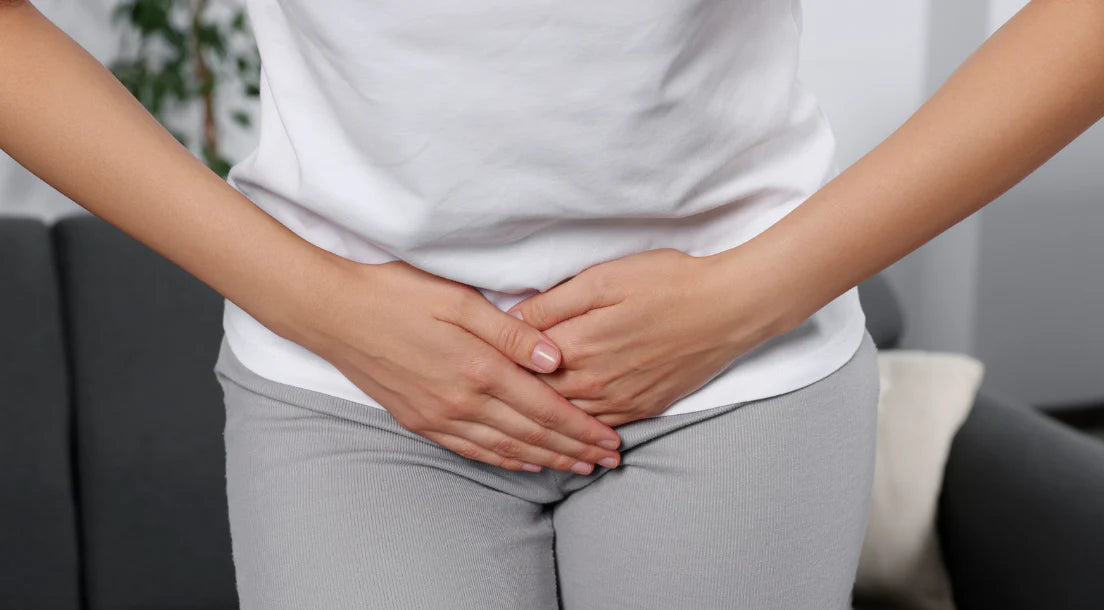

If you've ever had a UTI, you know it's something you definitely want to avoid! So, it's completely understandable when people ask, "Can using a menstrual cup cause a UTI?"
The short answer is no, the menstrual cup itself won't give you a UTI. However, it all comes down to how you use and care for it.
In this blog, we'll explore everything you need to know about menstrual cups and UTIs, clear up some common misconceptions, and share useful tips for ensuring your periods stay safe and healthy.
What is a UTI?
Aurinary tract infection(UTI) happens when parts of your urinary system—like your bladder, urethra, or kidneys—get infected. UTIs can be mild, causing discomfort and pain in the bladder, or they can be more serious, leading to biggerhealth concerns.
What causes UTIs?
UTIs are usually caused by bacteria entering the urinary tract. According to WebMD, about half of all women will get a UTI at least once, while for men, it's around one in ten.
Generally speaking, women are more prone to UTIs mainly because of their anatomy.
Their shorter urethras increase the likelihood ofbacterial growthand buildup, increasing the risk of infection, which in turn affects the overall urinary health of women.
Factors like frequent sexual activity, hormonal changes during pregnancy and menopause, and a history of UTIs can also up the chances of getting one.
If you’ve had a UTI before, you might be more likely to get them again, which can lead to what's known as a chronic UTI.


What are some UTI symptoms?
When you have a UTI, you might feel pain in your lower belly or pelvis, need to pee a lot, or even notice blood in your urine.
These are common UTI symptoms and can signal a bladder infection, also called cystitis. If the infection reaches your kidneys (pyelonephritis), you could experience fever, chills, nausea, and vomiting.
While UTIs are usually not too serious, ignoring them can lead to bigger problems like chronic UTIs, kidney damage, and even sepsis, a life-threatening condition.
So, it's important to treat UTIs promptly to protect your bladder health and avoid any long-term health issues.
How can I ensure UTI prevention?
As mentioned before, UTIs can happen when bacteria gets into your urinary system. Here are some helpful tips to avoid them:
1. Stay hydrated: Drinking water IS the solution to most problems! Make sure you’re drinking plenty of water throughout the day to help flush bacteria out of your urinary system.
2. Practise good hygiene: Always wipe front to back, and make sure you always pee after sex to remove any bacteria that might have entered. Also, never hold your pee, go to the bathroom as soon as you feel the need! Holding in urine can encourage bacterial growth.
Your vagina really doesn’t need much to be clean and healthy, avoid scented products like sprays, douches and powders that can irritate you down there.
3. Use breathable underwear: Wear cotton underwear and avoid tight-fitting pants to keep the area dry and reduce bacterial growth.
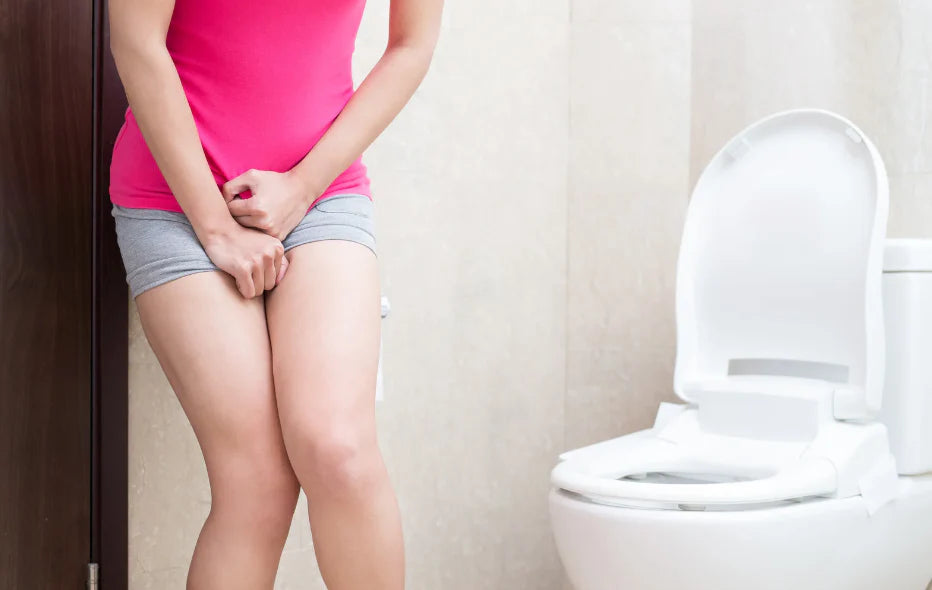

4. Use proper birth control: Some birth control products such as diaphragms and spermicides increase UTI risk, avoid using these and seek medical advice on the best birth control for you
5. Regular check-ups: Visit your doctor regularly for check-ups, especially if you are more prone to UTIs and seem to be getting them often. This will help address any other underlying issues that might be causing them.
6. Choose the right period product: This is extremely important! Some menstrual products like scented pads or tampons can irritate your urinary tract and increase risk of infection.
Because they absorb blood, they need to be changed very frequently to avoid long exposure to the dampness and irritants which may increase the risk of UTIs.
Menstrual cups are a great alternative because firstly, they’re inserted and they collect and not absorb blood, hence decreasing the risk of infection. Secondly, they do not contain scented irritants and are actually much cleaner!
Tips to prevent UTIs when using a menstrual cup
1. Clean the menstrual cup before each menstrual cycle, including the first time you ever use it.
Cup cleaning is essential in preventing the entering and growth of bacteria in the urinary system upon cup insertion.
Follow this guide on how to clean a menstrual cup.
2. Thoroughly rinse the cup with clean water in between each insertion.
If you’re using the Asan cup, make sure you check the air holes and ring after rinsing to ensure they’re completely clean.
3. Sterilise the cup in boiling water for 10 minutes between each period cycle. Cup sterilisation makes sure that it’s sanitised and free of any bacteria before being inserted.
If you don’t have access to boiling water, you can read this blog for tips on how to sterilise your menstrual cup without boiling.
4. Wash your hands with soap and water whenever inserting or removing the cup.
5. Although not essential, you can also use Asan’s one-drop cleanser for extra cleanliness and hygiene. Just squeeze one drop of this natural cleanser onto your cup and rinse thoroughly with normal water.
The important thing to remember is that consistent hygiene is the most significant factor in UTI prevention. This is why health education, cup safety and good hygiene practices are extremely necessary.
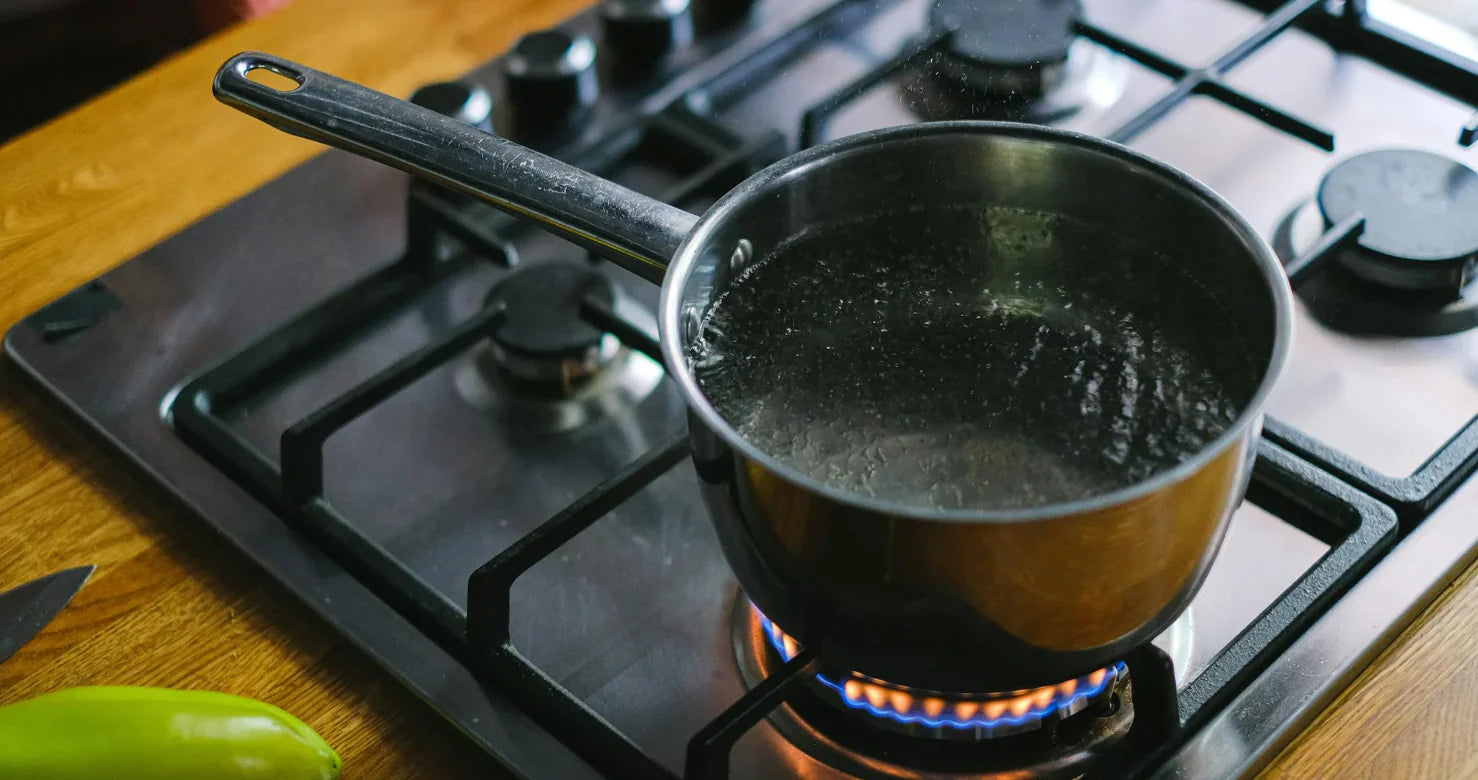

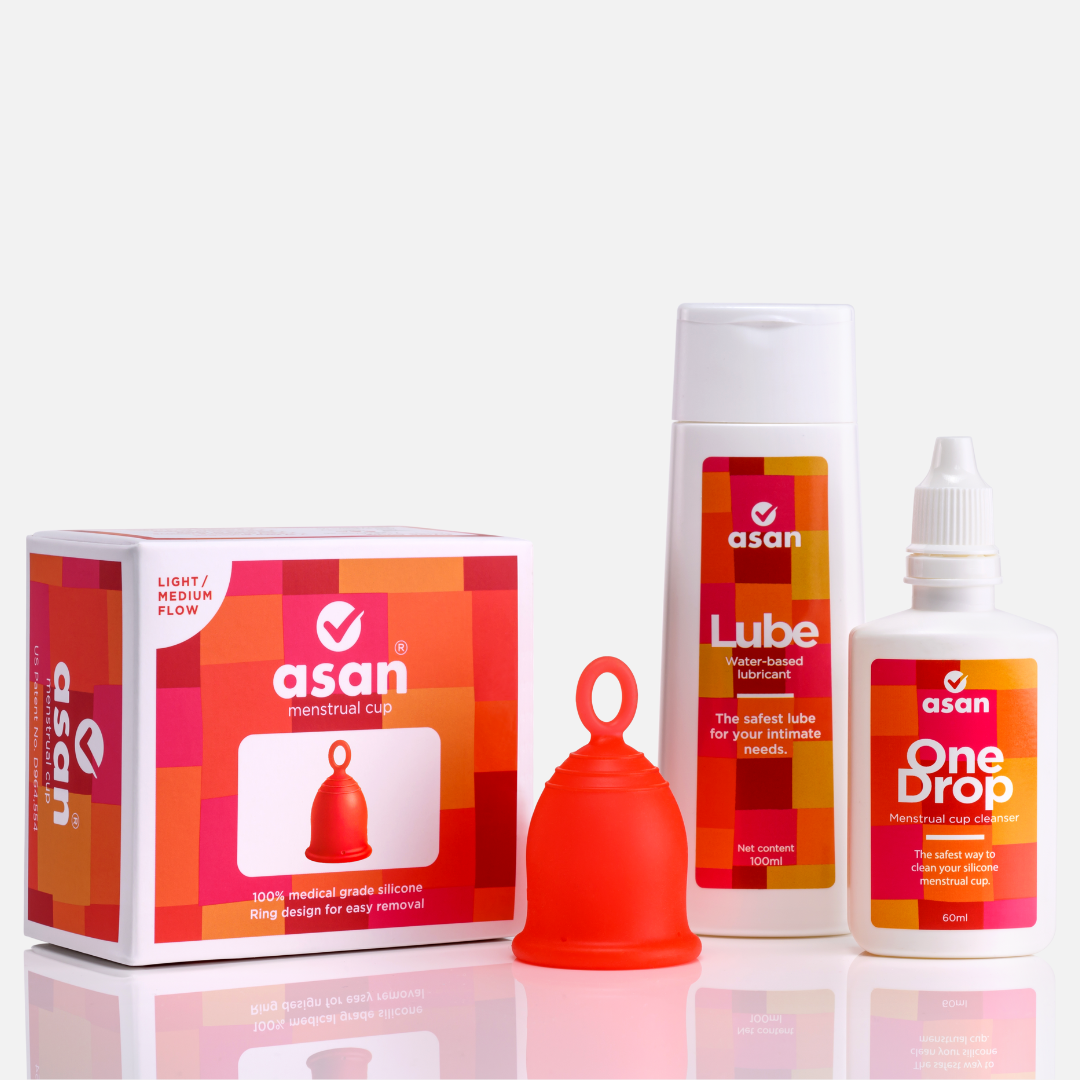
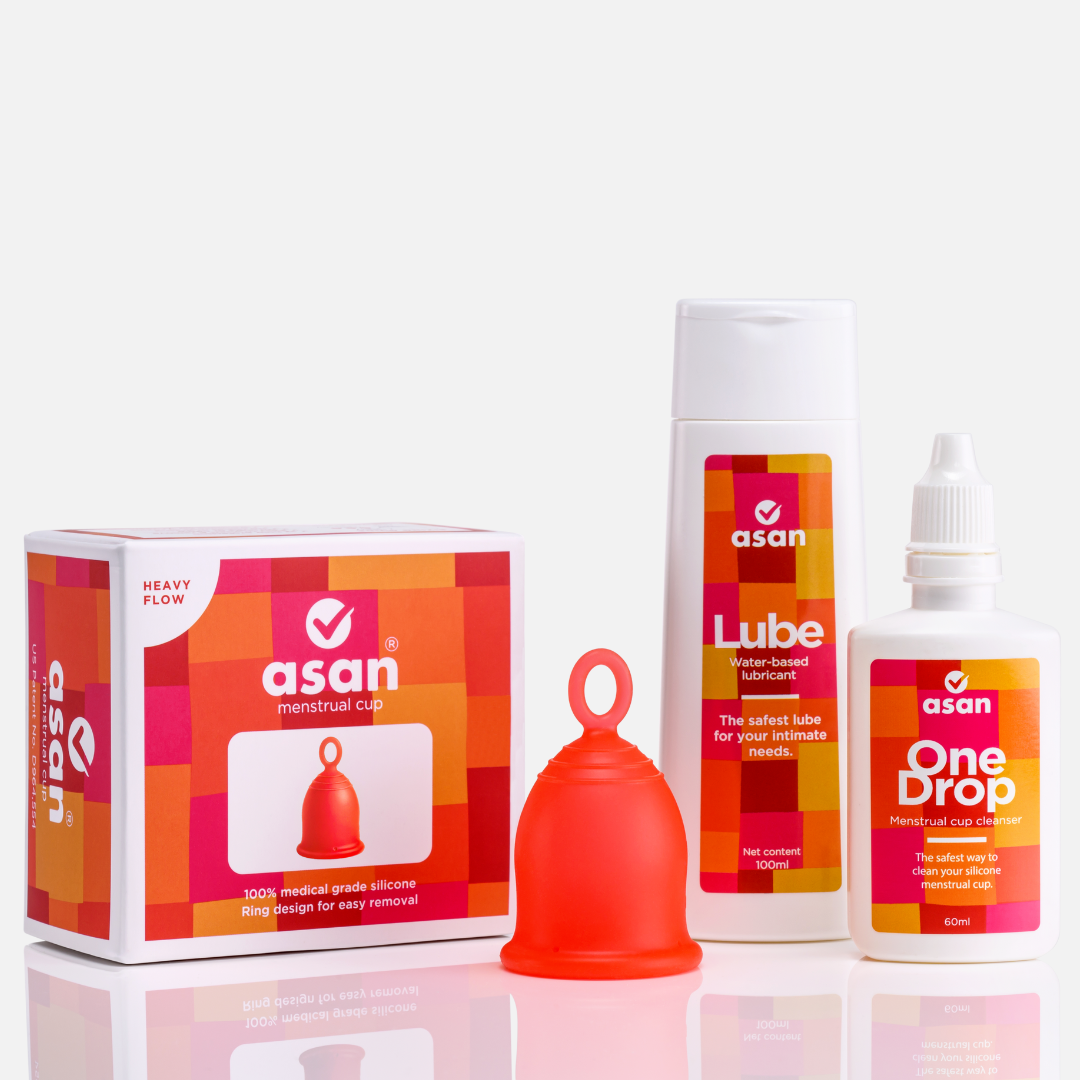
Complete Period Bundle
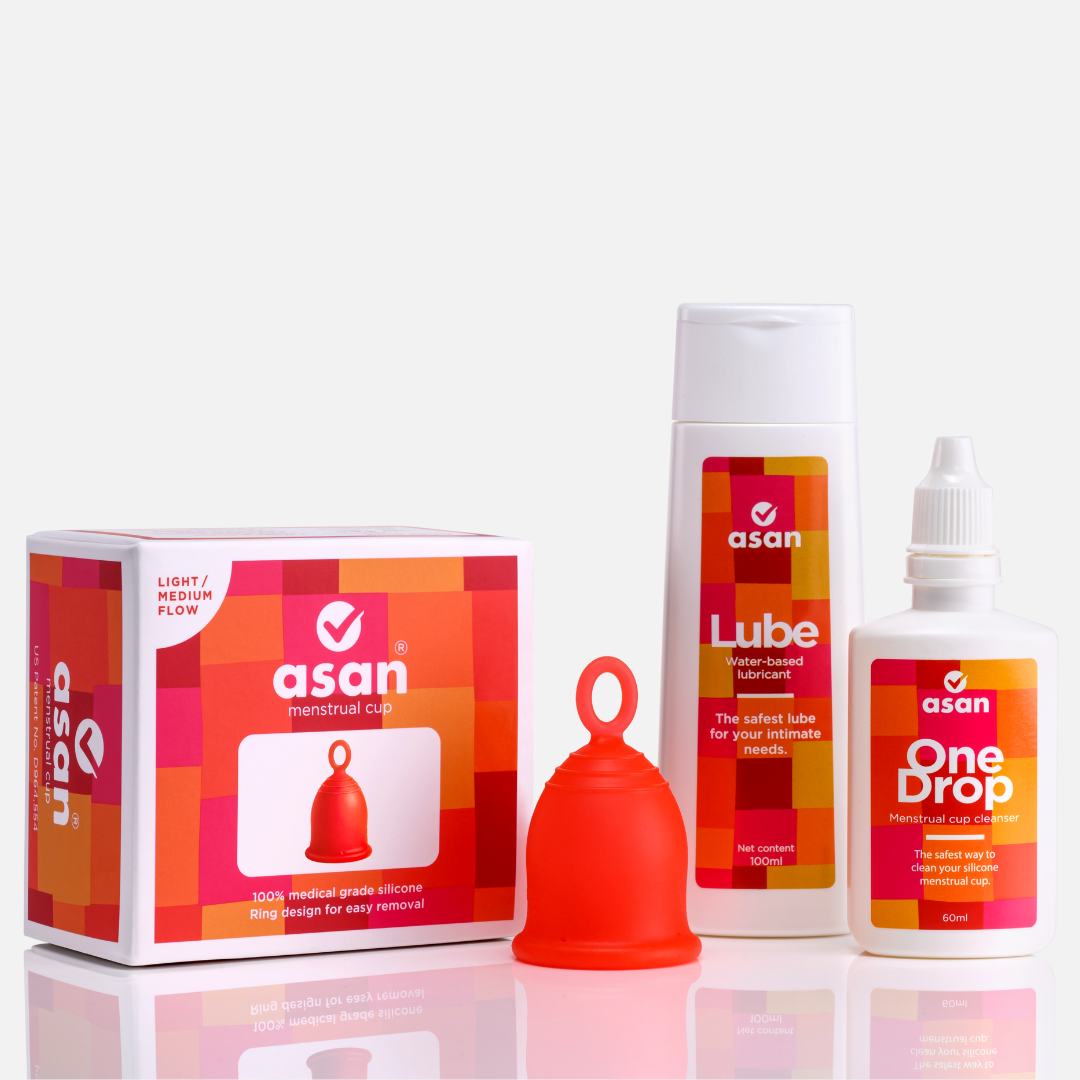
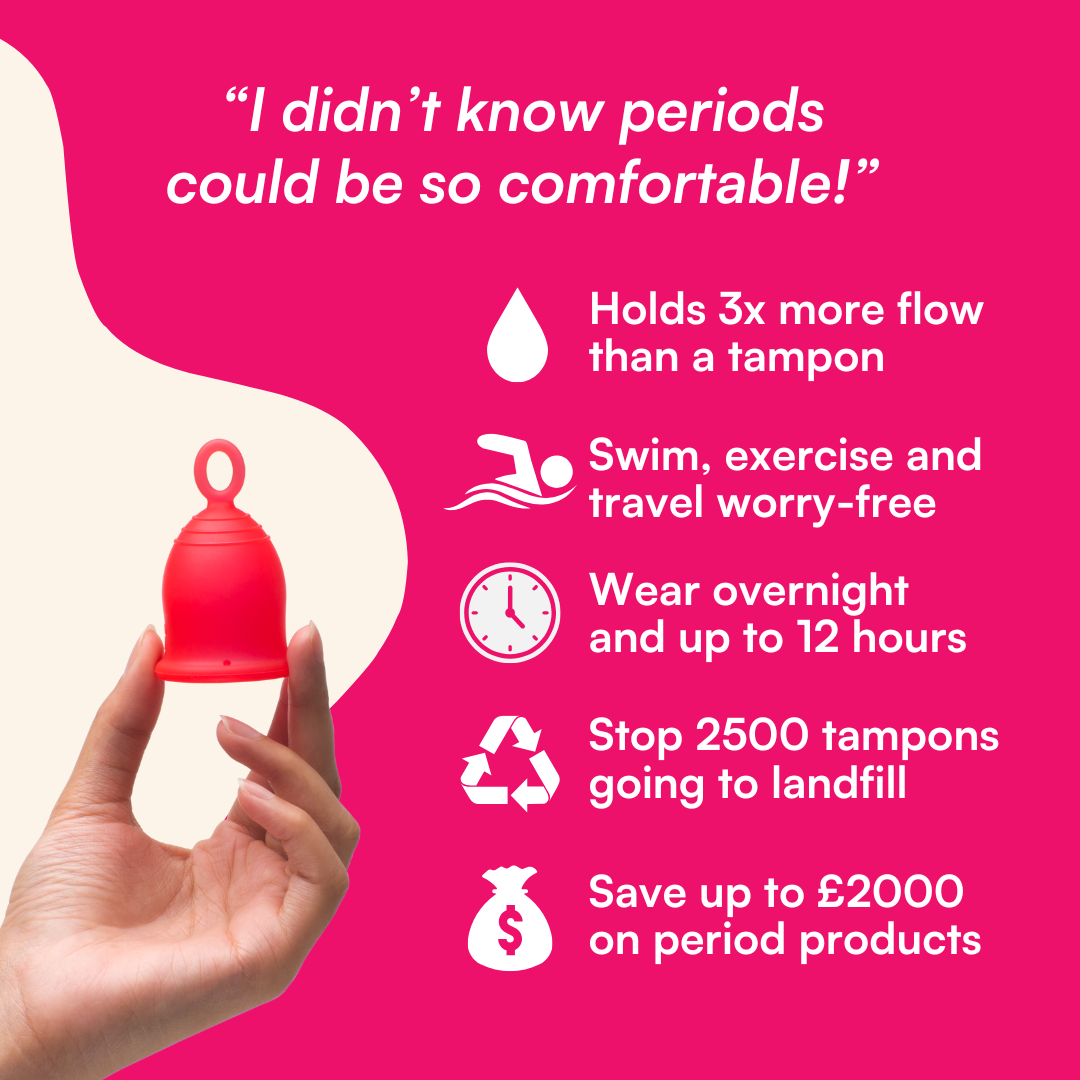
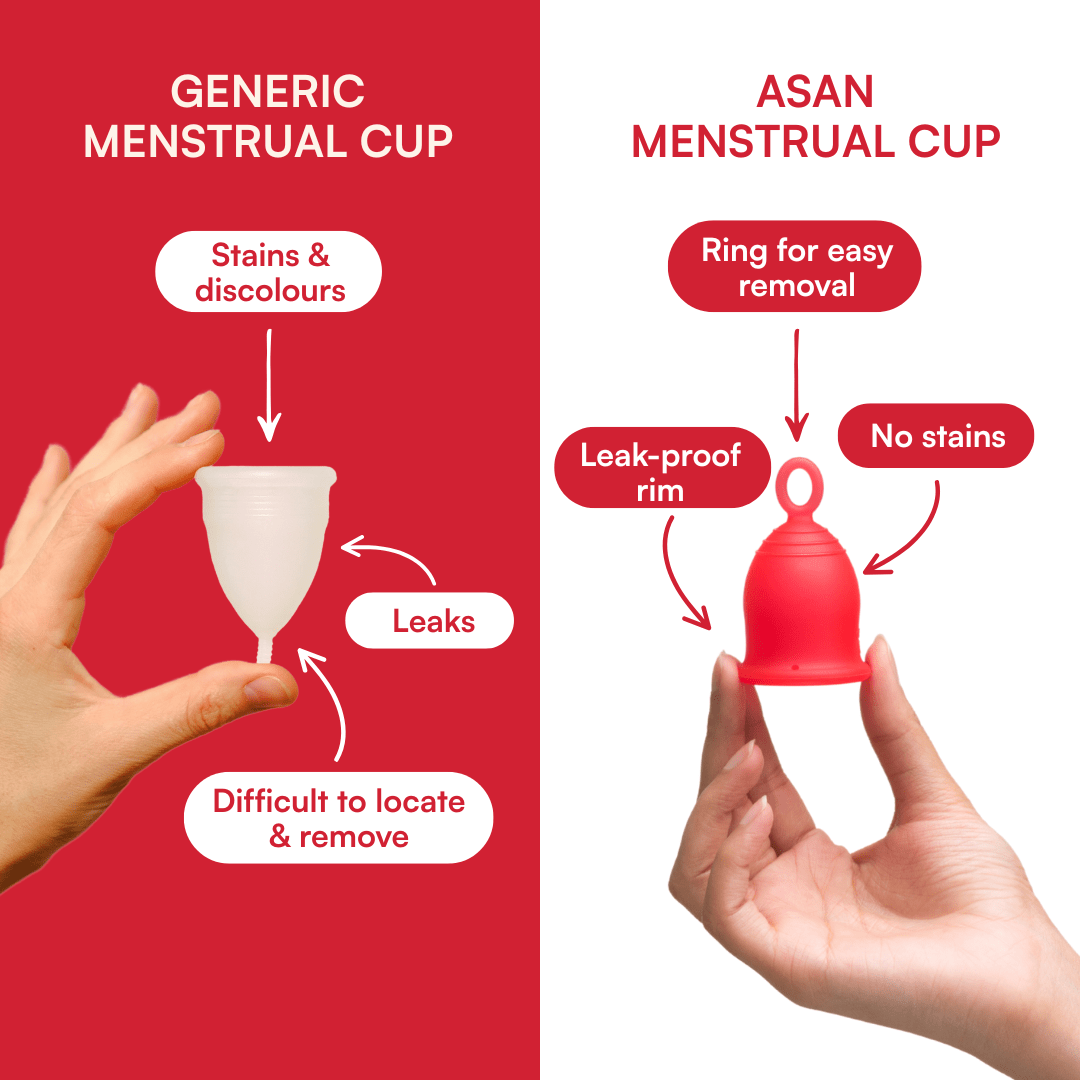

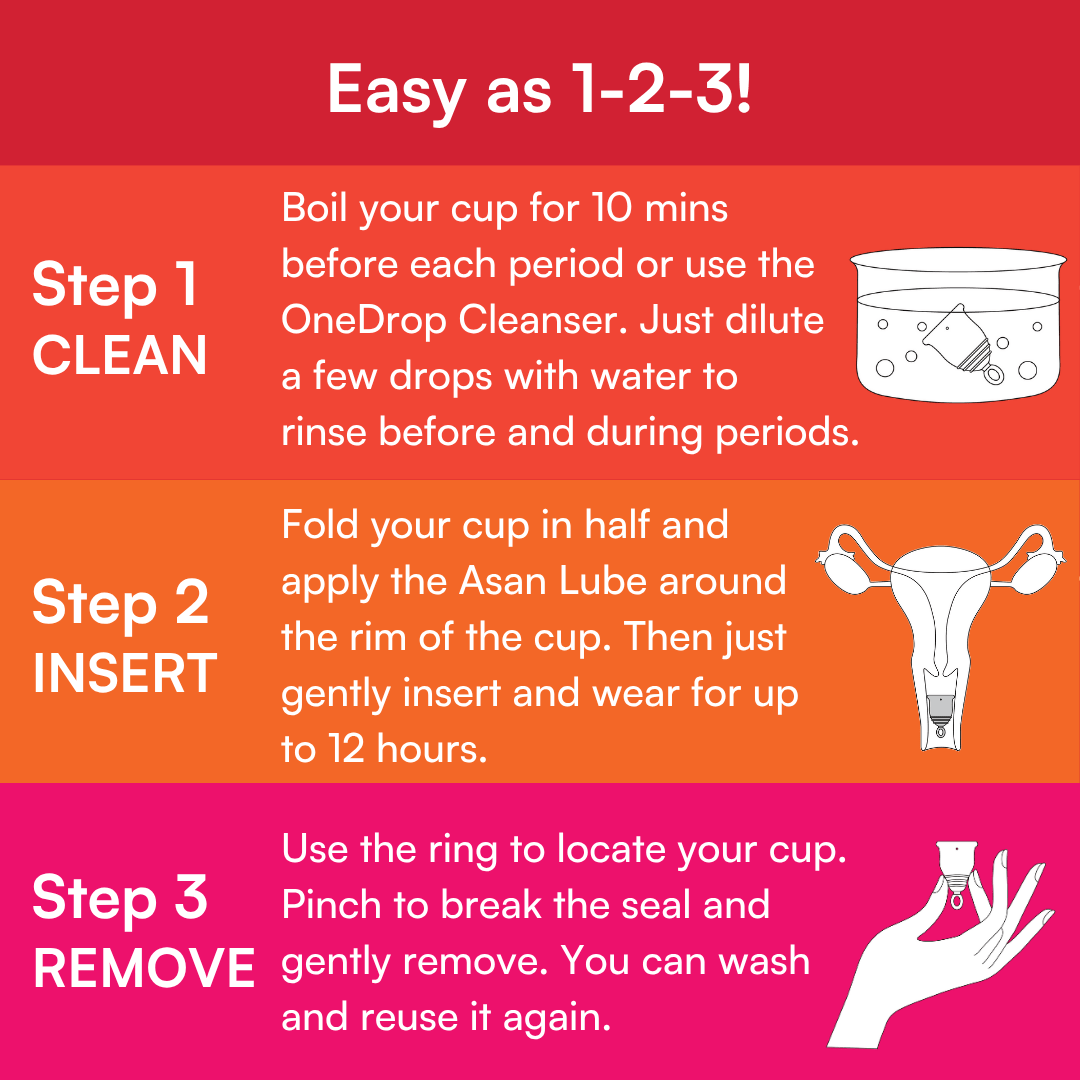
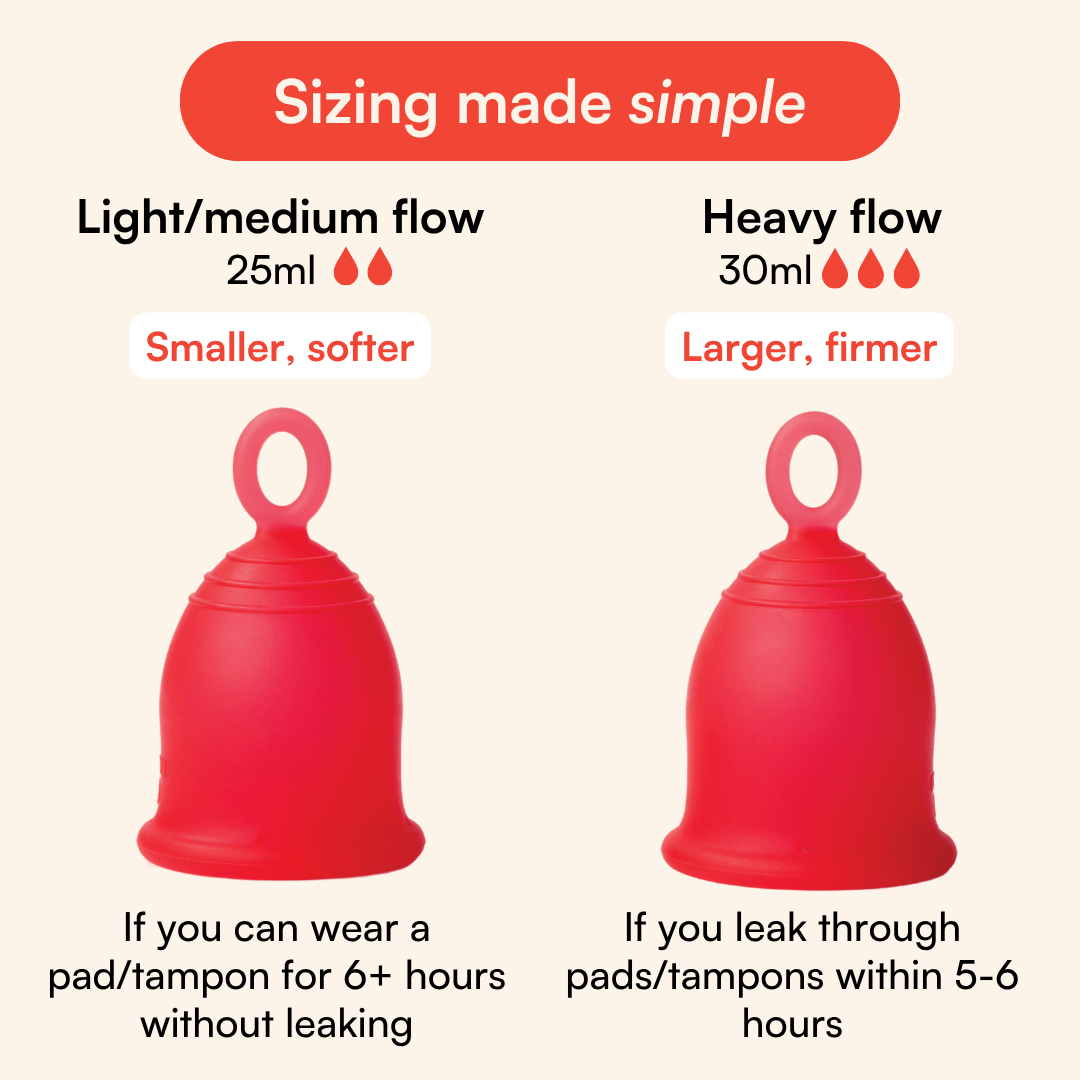

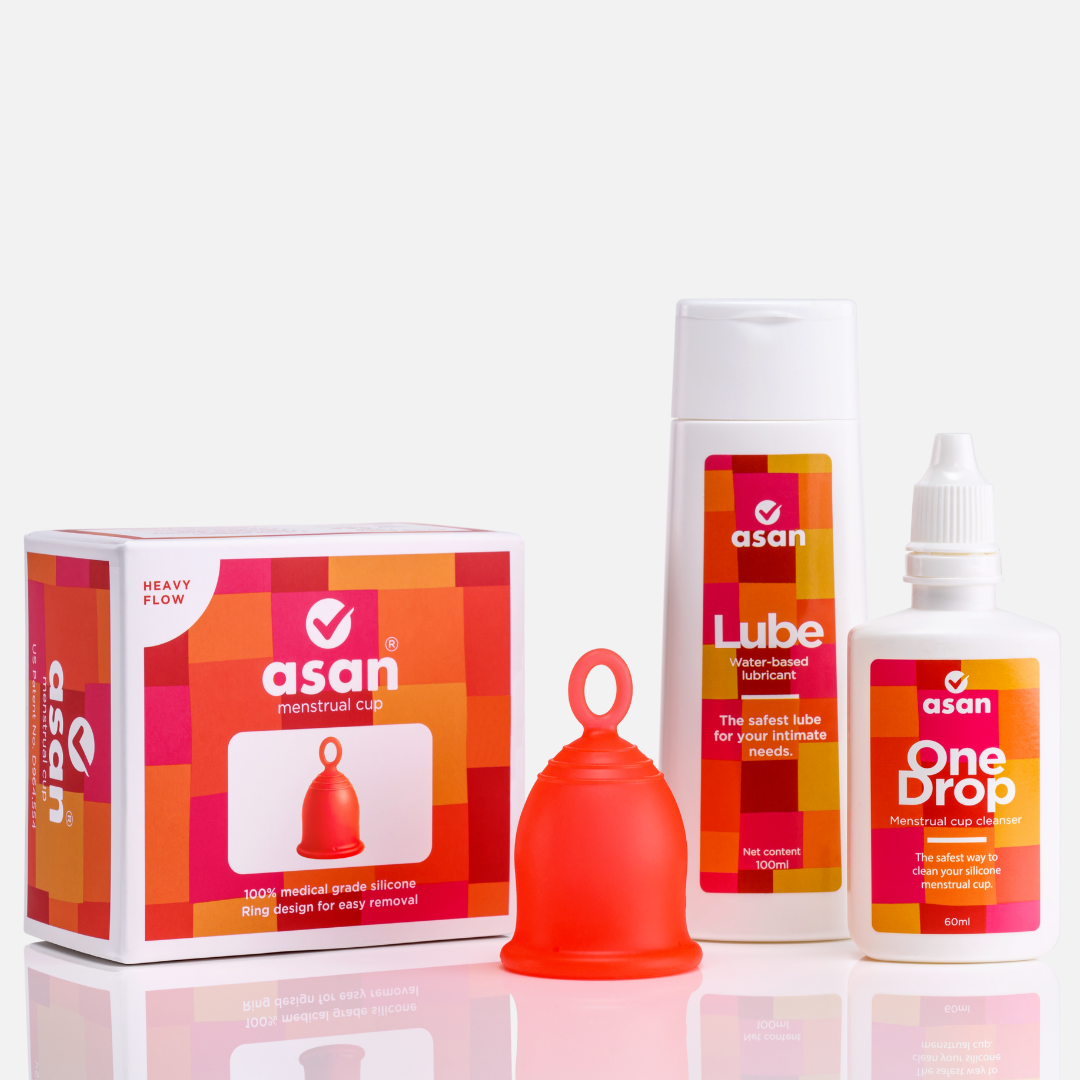
Frequently asked questions
Can astronauts use menstrual cups in space?
Yes, with proper training and adaptation to menstrual cup use in no gravity conditions, astronauts can use menstrual cups effectively.
How are menstrual cups cleaned during space missions?
Menstrual cup sanitation in space involves using limited water and specialized cleaning agents or wipes designed for space environments.
Are menstrual cups safe for long-duration space missions?
Current research indicates that with appropriate menstrual cup cleaning protocols for astronauts, they can be a safe and sustainable option.
What are the challenges of using menstrual cups in zero gravity?
Challenges include mastering menstrual cup insertion techniques in zero gravity and ensuring thorough cleaning with limited resources.
Has any space agency approved the use of menstrual cups for astronauts?
While not yet standardised, ongoing studies like the AstroCup project are paving the way for potential approval and integration into space missions.
More Posts
View all-

Is it safe to take period delay pills?
Thinking of delaying your period? This guide explains how period delay pills work, what to watch out for, and how tracking your cycle can make planning easier.
Is it safe to take period delay pills?
Thinking of delaying your period? This guide explains how period delay pills work, what to watch out for, and how tracking your cycle can make planning easier.
-

What are the stages and symptoms of menopause?
Menopause is a natural transition, but it can bring a mix of changes to your body and mind. This blog covers the stages, common symptoms, and simple tips to help...
What are the stages and symptoms of menopause?
Menopause is a natural transition, but it can bring a mix of changes to your body and mind. This blog covers the stages, common symptoms, and simple tips to help...
-

How to track your menstrual cycle with a period tracking app
Still counting days on your fingers to guess your next period? A period tracking app can change that. From predicting your cycle to spotting patterns in your mood, energy, and...
How to track your menstrual cycle with a period tracking app
Still counting days on your fingers to guess your next period? A period tracking app can change that. From predicting your cycle to spotting patterns in your mood, energy, and...
-

Can you use a menstrual cup if you have PCOD?
Curious how PCOD affects your cycle, fertility, and hormones? This guide breaks it down simply, plus tips on managing symptoms and using menstrual cups.
Can you use a menstrual cup if you have PCOD?
Curious how PCOD affects your cycle, fertility, and hormones? This guide breaks it down simply, plus tips on managing symptoms and using menstrual cups.
